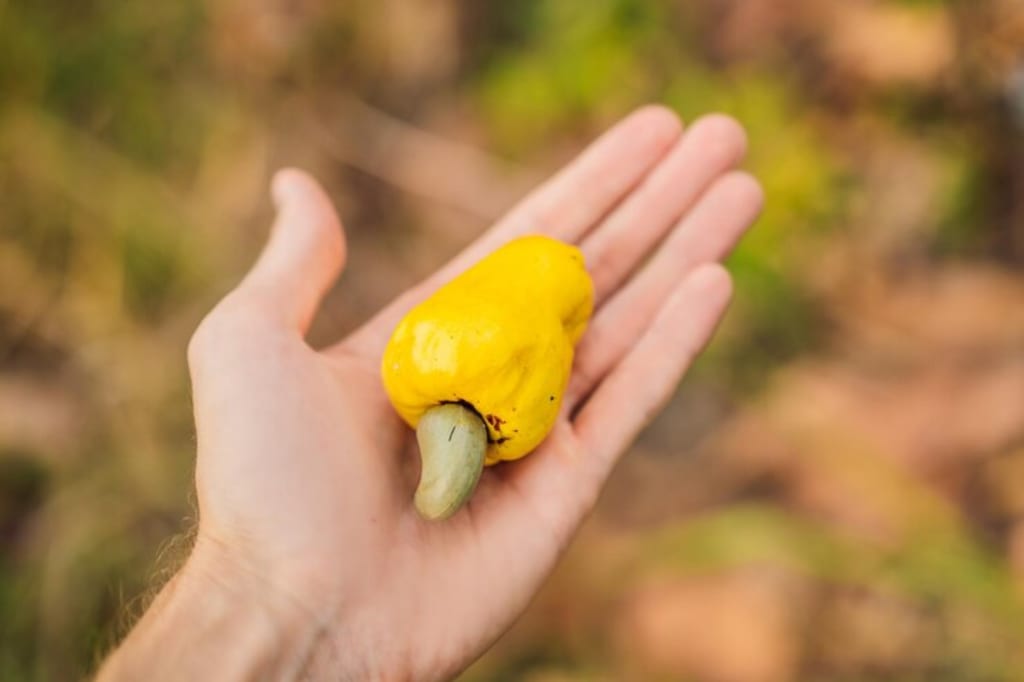Feni: Unveiling the Centuries-Old Tradition of Goa's Liquid Gold
Discovering the Timeless Artistry and Local Charm Behind India's Rare Liquor Crafted from Cashew Fruit Juice

Nestled in the picturesque landscapes of Goa, India, lies a rare and age-old liquor known as Feni, crafted with a single, extraordinary ingredient – juice from cashew fruit. This unique spirit is exclusive to this region of the world, and its production is kept alive by a handful of families who have faithfully upheld traditional techniques dating back to the 1500s. While some brands are attempting to bring Feni into the mainstream, one family, the Gownkas, continue to handcraft small batches and sell locally, preserving the essence of this culturally significant beverage. Our journey takes us to Goa, where we explore this fascinating tradition that has stood the test of time.
As the sun rises over the lush Goan landscape, the Gownka family embarks on their daily ritual of scouring their land for fallen cashew fruits. These ripe fruits, easily identifiable by their vibrant hues, are meticulously picked up using wooden sticks with needles attached to the ends. The matriarch of the family, Drupati Gamkar, has been immersed in the art of Feni production for six decades, stepping into the role after her husband's passing. With a wealth of knowledge and experience, she leads her family through the intricate process.
The Feni-making season, which lasts from March to April, sees the involvement of Drupati's children and grandchildren. Together, they collect around eight buckets of cashew fruits per hour and then proceed to extract the seeds, separating the precious cashew fruit from the nut. The raw cashews are then sold to local factories for further processing, adding to the family's income.
The juice extraction is the next critical step, where Santosh Gankar dons mining boots with hard soles, aiding in squeezing the fruits for more juice. In the past, they employed a large wooden stick for this process, but over time, they discovered that stomping with their feet proved to be more efficient. Despite the tiring nature of the work, the family perseveres, juicing a full vat of cashew apples within an hour, all while battling the sweltering heat.
The remaining fruit waste is piled into a mound, carefully wrapped with rope, and placed under rocks to extract every last drop of juice. Waste not, want not, as the discarded fruit finds a new purpose as cattle feed or is given to local farmers. The juice is then filtered through a cloth and left to ferment for two to three days before being transferred to a copper drum.
Drupati skillfully seals the drum using cloth and mud, with the latter sourced from nearby ant hills. The soil from these mounds is refined by the ants and snakes that inhabit them, making it perfect for tank sealing. The drum is heated using wood harvested from the family's land, and the steam passes through a pipe into a tank filled with water to cool down the vapor. This process yields a less alcoholic beverage called orak, which the family sells when there's demand. Alternatively, they redistill it for another seven to eight hours to produce the final feni.
The Gownka family's experience and keen observation allow them to determine the right temperature and alcohol content of the feni. After meticulous testing, they produce around 175 liters of feni each season, selling their handcrafted liquor to local buyers. However, with societal changes and migration to larger cities for work, their customer base has diminished, posing challenges to their business's sustainability.
While the Gownka family chooses to remain true to their heritage and traditional practices, other feni makers in Goa, like the brand Kazulo, are striving to expand the market and elevate the drink's popularity. Drawing in both locals and tourists, Kazulo offers tasting rooms and distillery tours, aiming to create a new generation of feni enthusiasts.
Feni, however, faces hurdles beyond Goa's borders, falling under the country liquor category, which hinders its acceptance in wider markets. Despite its rich cultural heritage and captivating history, this liquid gold remains largely unknown to the world beyond Goa.
As time goes on, the Gownka family wonders about the future of their business. With the challenge of sustaining their traditional craft amidst modernity, their love for Feni continues to fuel their dedication, preserving this centuries-old tradition one batch at a time. The legacy of Feni lives on through families like the Gownkas, weaving a tapestry of heritage and craftsmanship that enriches the cultural fabric of Goa.





Comments
There are no comments for this story
Be the first to respond and start the conversation.